Walk the Line: Ryan Geldard from M-AR Offsite
We caught up with Ryan Geldard, Operations Director at M-AR Offsite, to talk about the successes and challenges of scaling rapidly and delivering award-winning MMC projects.
Ryan Geldard
Operations Director
M-AR Offsite
Listen to the interview here, or read on below….
Ryan, could you tell us a little bit about yourself and your role at M-AR?
“I'm a director and a shareholder at M-AR, having been with the business for just over four years.
Historically, I worked for a sustainable housing developer working toward high-efficiency levels, similar to Passivhaus through a SIP (Structural Insulated Panel) system. I’ve worked in various other roles, but my grounding is in main contracting.
I previously worked for a company called BAM Construction who are a big global builder, where I worked with some fantastic teams and was exposed to quite a lot of high-value projects like Leeds Arena. I set out on the Modern Methods of Construction (MMC) journey, through the SIPS builder in Leeds, and then onto M-AR.
It’s natural to talk about the challenges of the past year, but could you talk about the success you’ve had in the last 12 months?
“The main success for me is how significantly we’ve grown, and the strong management team we have in place now. We've brought in some people that I think are really going to help us take the business to the next level, who are constantly pushing for improvement in different areas across the business. We’re starting to deliver some amazing projects which are pushing the boundaries of what’s available in the UK modular construction market.
We delivered an award-winning project up in Middlesbrough (below) which involved a high cantilevered office structure based on a Lego concept from the architect. The project was complex, but the team saw this as a real challenge and not a burden.
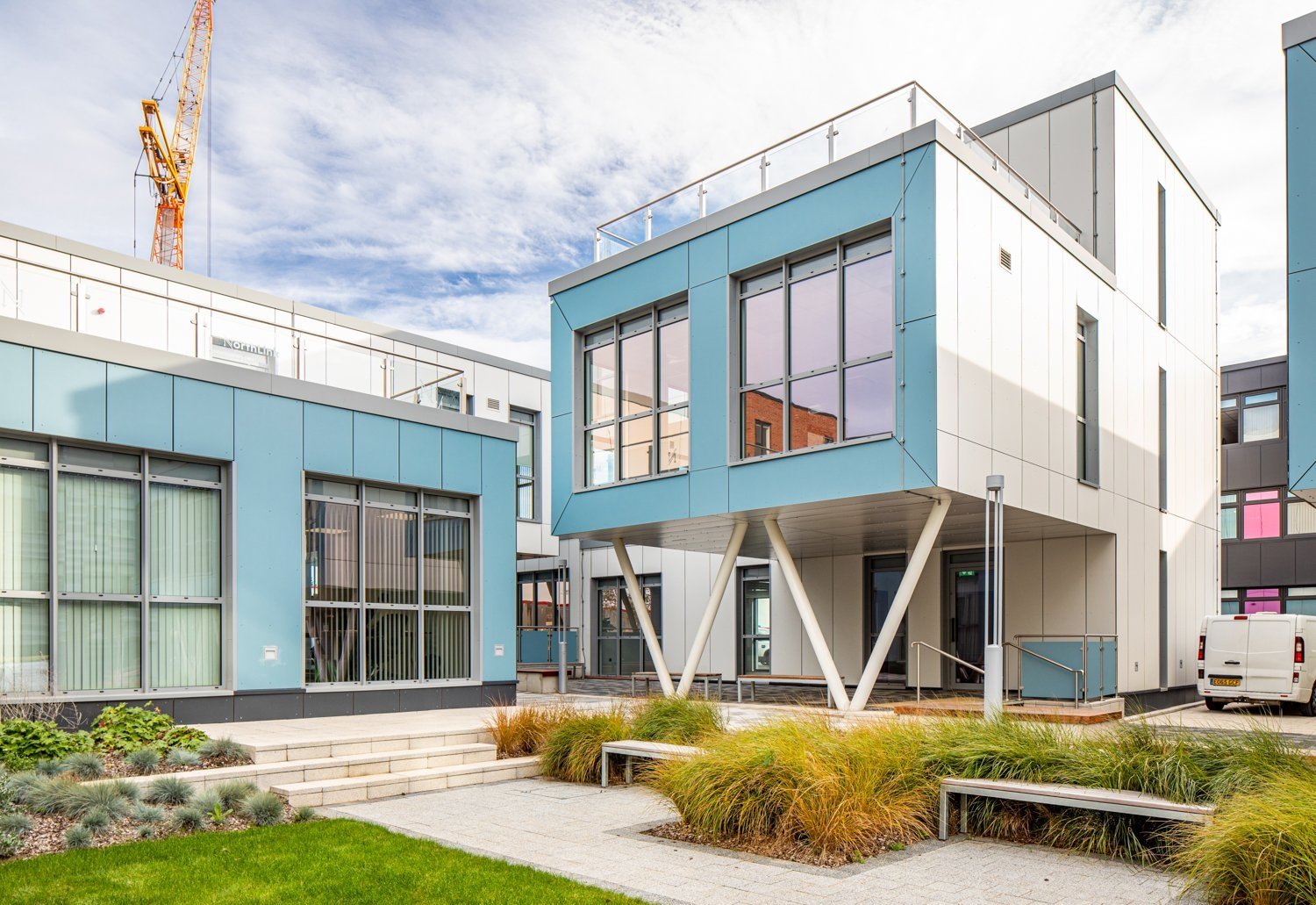
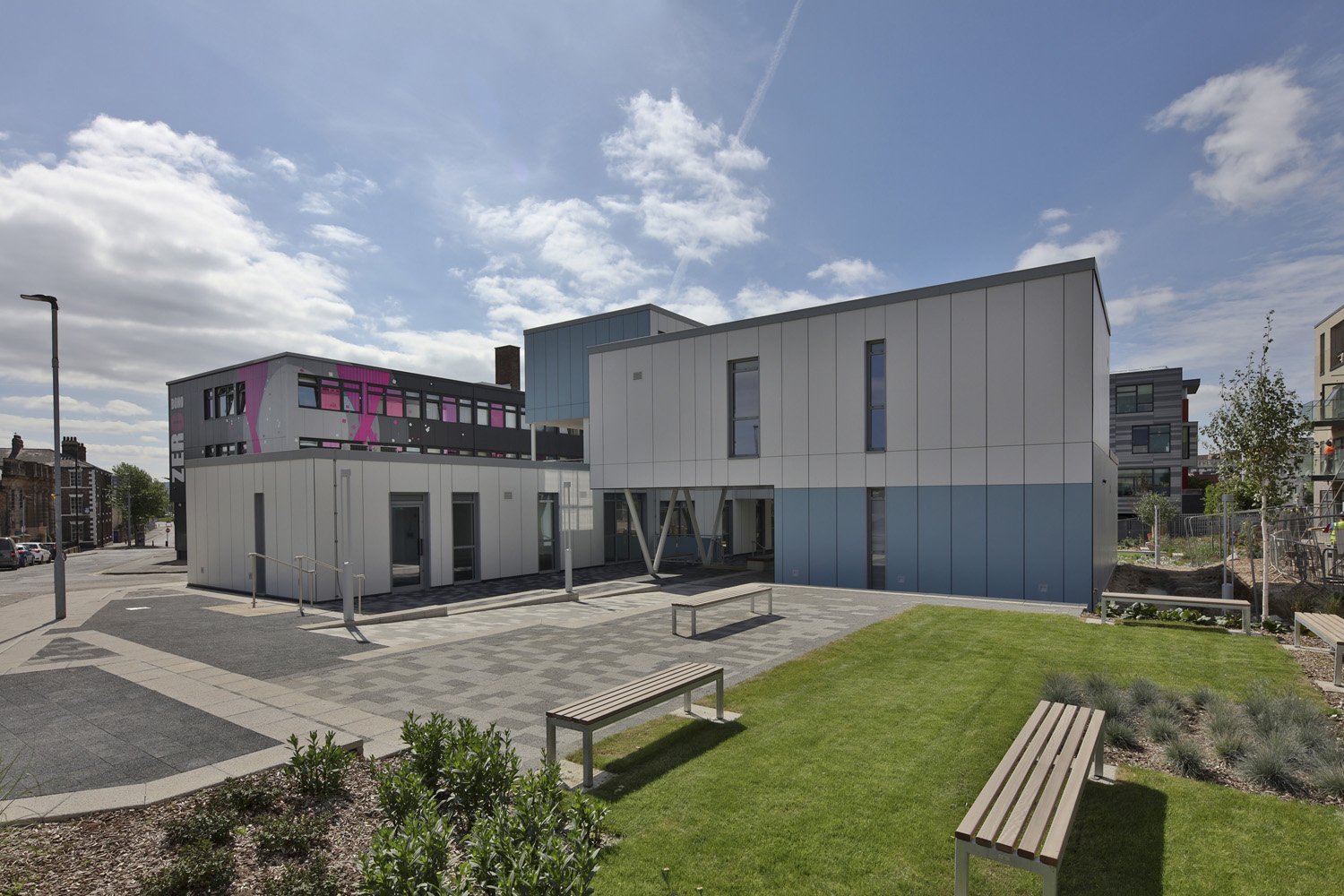
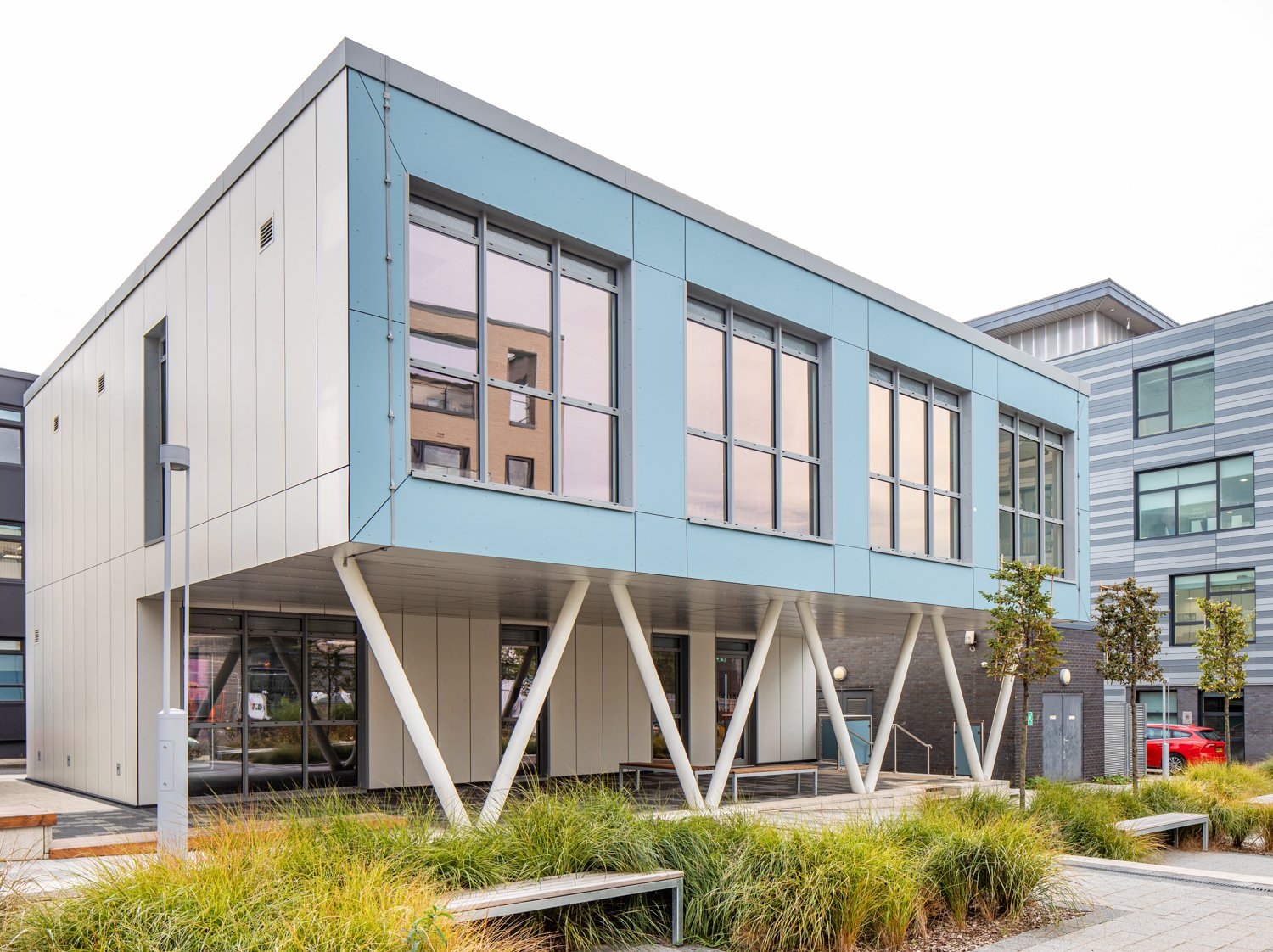
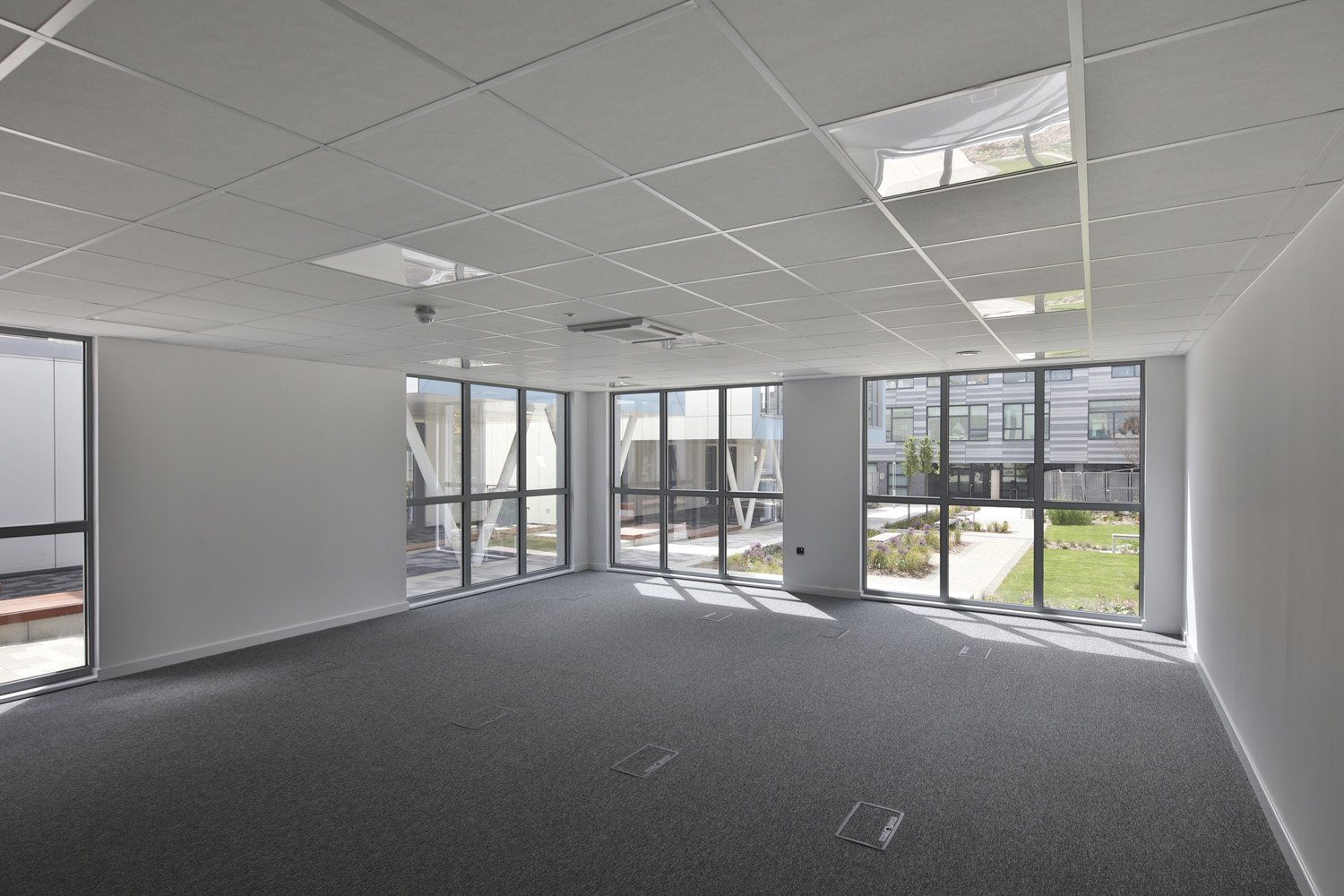
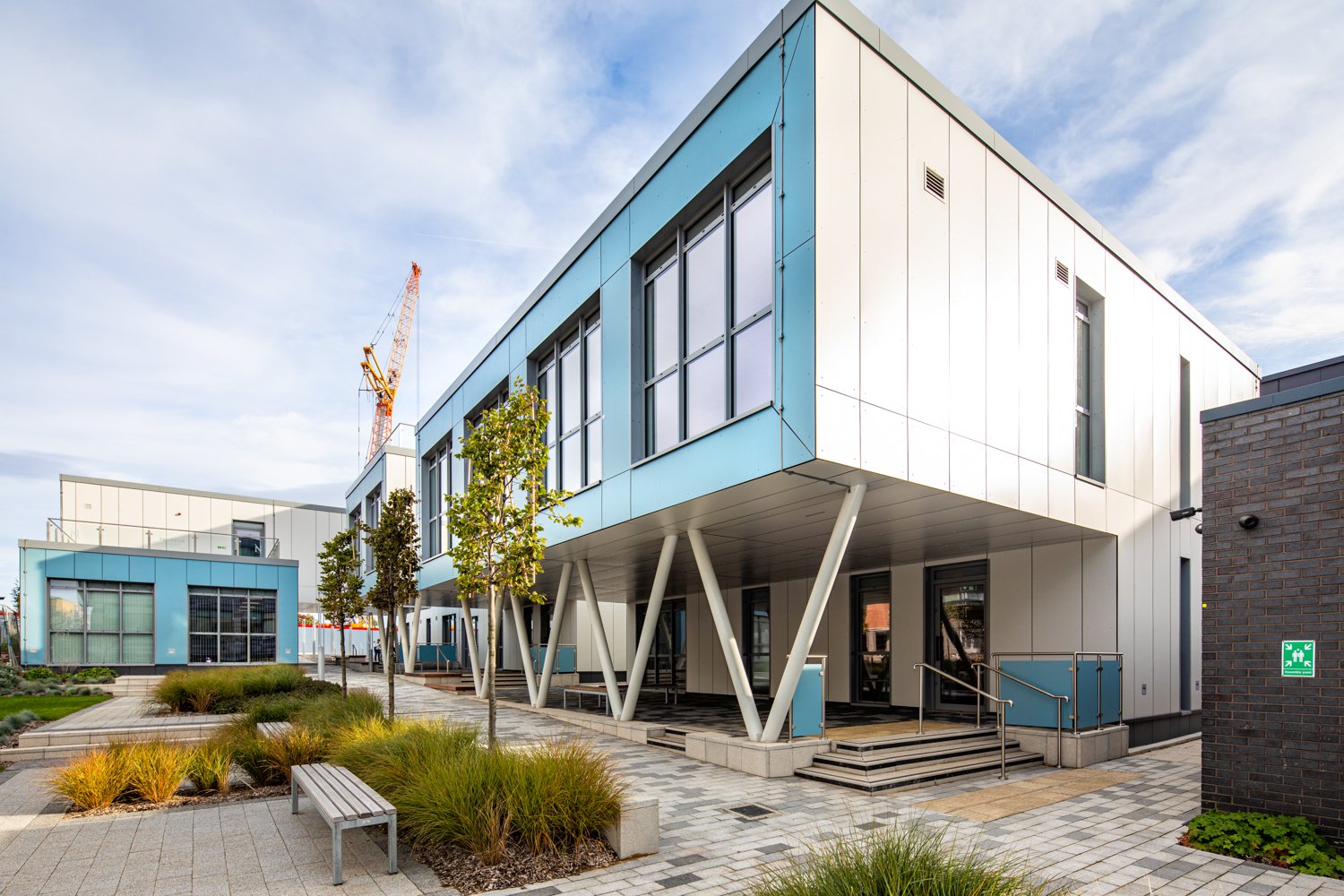
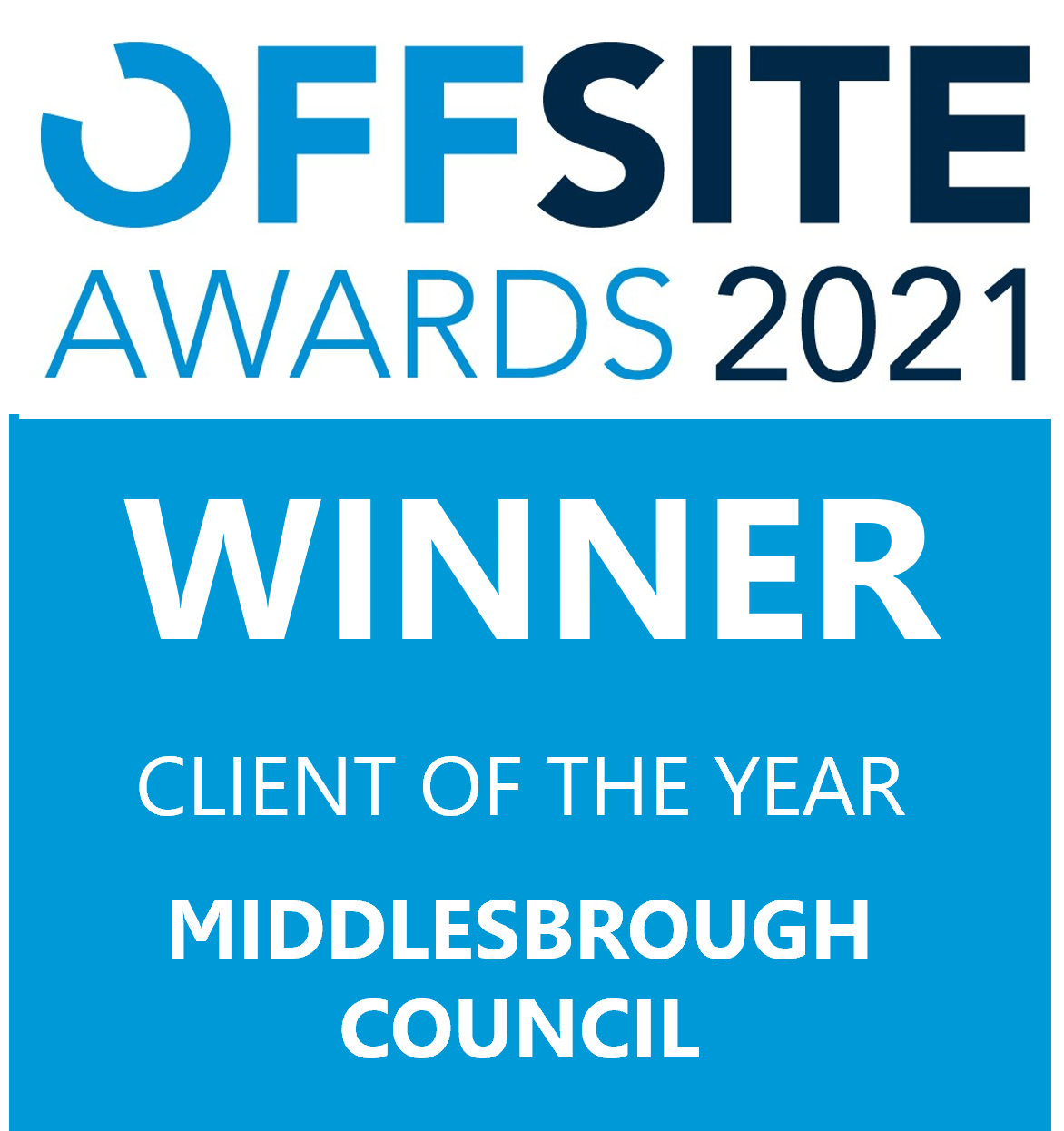
BoHo 8 – Award-winning office blocks in Middlesbrough, by M-AR Offsite
“The business has also grown significantly from a turnover perspective, increasing from £6 million in 2019, to the estimated £30 million turnover we expect to see this year.”
We’re particularly proud of this given the business is run by the same three shareholders that it has always been, we’ve had no external private equity money or any other investments.
You’ve scaled the business and increased profitability. How have you managed to achieve those two things at once?
“I think mostly it’s been through small changes. Bringing in good people who can help you deliver continual improvement has been transformative for us. We’re supported by a fantastic team, but also by the subcontractors and supply chain that we work with.”
In terms of physical scaling, we moved into a new factory just over twelve months ago. We needed to move from the old factory into the new factory and needed to do it quickly, as we were still delivering orders. The team really stood up to the challenge, and we now have 100,000 square feet of manufacturing space which has unlocked a lot more opportunities.
The new M-AR factory
The team is clearly a huge factor in M-AR’s success. What is it that you do differently with your team that has the biggest impact?
“What we’ve tried to do at M-AR is create an environment where there are no bad ideas. Nobody dismisses any ideas. We entertain things that are a little bit off the wall.”
We’ve also got a shareholder team who have been active operationally within the business and who are able to see the daily challenges. We’re all able to bring creative ideas into a safe zone. It’s that confidence across the whole team that’s relayed to the clients that we work with.
We prioritise and place full trust in our team, and I think that ethos carried us through the pandemic where we faced new challenges and ways of working flexibly.
It also enabled us to find new skills within the team. In a growing market like offsite construction (which is effectively a blend of construction skills, commercial awareness and the ability to find ways to do things that have not yet been done) it’s essential for success.
Offsite construction often involves a balance between a manufacturing mindset and a construction one. Where do you see yourself within that balance?
We’re not as highly capitalised as some of the bigger players in the industry.
They operate on the fact that they're effectively the client as well as the contractor and manufacturer. Whereas our approach really is that we see manufacturing and construction as a spectrum.
There are manufactured products at one end, and then at the other, there’s a complex project that could be better delivered with modern methods of construction. Of course, we've got a volumetric factory we want to fill, but what we want to do is look at life through the lens of the customer.
80% of the industry’s customers sit in the middle demographic (with 10% early adopters and 10% will never embrace a new way of working), unsure about new methods, but they do know that they want a building. What we try to do is work with clients where we say, "Let's not overly commit too soon on the build method, what are you *really* trying to achieve with this build?”. It’s amazing to me that most say things like “well if I could get a building at the snap of my fingers, without the pain of a construction process and stress of contracting then I would” and that really resonates with our mission.
Of course, that takes trust, so if we think, after seeing their plans, that they would be best sticking to bricks and mortar, we say that. We’ve started to build that trust in the marketplace that encourages people to come to us in the first place.
“I think what’s special about us is that we’ve brought in some really good construction people, as well as some amazing manufacturing people: we’re not having to pick a side.”
We’ve also got projects that reflect that. Stourton Park and Ride for example, was a project done alongside a company called BAM Nuttall, who are a big civil engineering business. We delivered a terminus building for them at the park and ride, which was about 50% volumetric for all the customer waiting areas, staff welfare areas etc., but the other half of the building was all battery transformers and HV rooms.
We are able to find the best mix of methods to suit that individual project.
Stourton Park and Ride
What will be the biggest challenge for you over the next 12 months?
We know that to get to our next level of growth, we need to capitalise the business whilst maintaining its efficiency and innovation. So, we’re looking to bring in partners and support where we can.
There are also external pressures in the marketplace at the moment, with supply chain and inflation issues.
My personal feeling is that we're through the worst of that, and while things are not coming down to where they were before in terms of lead times or cost, I've had relatively consistent advice from our key subcontractors on the cost of goods. For us, continuing to grow the business at the scale at which we've done over the last two or three years is the goal.
What do you consider to be the opportunity for digitisation in offsite construction currently?
I think for me, the reality is that you can't improve anything without measuring it first. And I think that’s what's difficult in the market at the moment. In businesses like ours, you need a lot of those 1% improvements to see a real change.
What’s been really exciting for me, in our relatively early journey in digitisation, is the fact that it's getting us to rethink a lot of the old processes.
“We’re starting to see the world through a digital flow chart. If we can create a world where the right digital inputs are put in at design, then passed through the business through the operation, at the end of it we’ve got insights for us to tweak and improve throughout.”
While we're capturing all of that information at the moment, the vast majority of it is lost because we just can't afford enough human capital to process it.
If we could capture it all, and utilise that insight, we could quite easily make that into a product in its own right so that we could help people all around the world deliver amazing projects in the best way.
Is there anything I should have asked you today, but haven't?
I think one of the big things that’s not spoken about enough in the industry is skills. Until we can reach the promised horizon of having operations where you can take people from unskilled backgrounds into facilities and train them up quickly, it is problematic. I think that there is a real issue with the availability of skilled people to work in the factories.
“I think across the industry we all need to work on bringing through enough people who not only have the manufacturing skill, but also the construction skill and commercial awareness. I think offsite companies have got to lead on that process.”
We have the standard ways of working that make it easy to train people. We have the ability to provide opportunities in what is a growing market, to really achieve people’s ambitions in terms of pay, benefits, variety of work.
In the offsite world, the horizons are so wide and the opportunities are so big, people can progress very quickly compared to other industries.
And to end, who are you passing the mic to next?
“I’m passing the mic to Dan Leach from TDS Group and Jamie Parr from Better Delivery.
Two very different people, but both very interesting and aligned on how they see the world”






